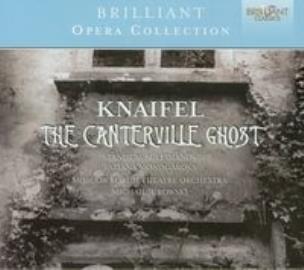- Regulamin
- Koszty dostawy
- Kontakt
- Dziś w ofercie 234 285 produktów
KSIĄŻKI
- Albumy
- Beletrystyka
- Biografie
- Dla dzieci i młodzieży
- Edukacja
- Ekonomia i biznes
- Ezoteryka
- Historia
- Informatyka
- Kalendarze
- Komiksy
- Kryminał i sensacja
- Kultura i sztuka
- Literatura faktu
- Literatura kobieca
- Literatura piękna
- Medycyna
- Nauka języków obcych
- Nauki humanistyczne
- Nauki przyrodnicze
- Nauki ścisłe
- Podręczniki
- Poradniki
- Prawo i administracja
- Przewodniki i podróże
- Psychologia
- Religia
- Sport
- Technika
- Zdrowie i uroda
ZABAWKI
- Artykuły dla niemowląt
- Bączki
- Bujaki i skoczki
- Ciągnij / pchaj
- Dla niemowlaka
- Grzechotki i gryzaki
- Karuzele i pozytywki
- Maty i centra zabaw
- Projektory i lampki
- Sortery i piramidki
- Zabawki
- Edukacyjne i kreatywne
- Figurki
- Klocki
- Lalki
- Pojazdy
- Pluszaki i maskotki
- Sport i rekreacja
- Zabawa w dom
- Zabawki drewniane
- Puzzle
- Do 200 elementów
- 201-500 elementów
- 501-1000 elementów
- Ponad 1000 elementów
- Puzzle 3D
ART. PAP
- Artykuły biurowe
- Artykuły piśmiennicze
- Bloczki i kartki samoprzylepne
- Dziurkacze
- Kalkulatory
- Nożyczki i nożyki
- Skoroszyty
- Teczki
- Wizytowniki
- Zszywacze
- Artykuły szkolne
- Akcesoria szkolne
- Modelowanie
- Notatniki i zeszyty
- Piórniki
- Plecaki i torby
- Pojemniki na śniadanie
- Pomoce naukowe
- Przybory matematyczne
- Przybory rysunkowe
- Upominki i gadżety
- Akcesoria do książek
- Artykuły balowe
- Breloki i zawieszki
- Drobiazgi, różności
- Kubki
- Oferta Świąteczna
- Papeteria, kartki i naklejki
- Skarpetki Many Mornings
- Upominki
GRY
MULTIMEDIA
- Audiobooki
- Beletrystyka
- Biografie i wspomnienia
- Dla dzieci i młodzieży
- Fantastyka
- Filozofia i religia
- Historia
- Literatura faktu i reportaż
- Poradniki
- Sensacja i kryminał
- Filmy DVD/BD
- Animowane
- Biograficzne
- Fantasy
- Horrory
- Komedie
- Romanse
- Science Fiction
- Sensacyjne / kino akcji
- Thrillery
- Muzyka CD
- Alternatywna
- Blues
- Dla dzieci
- Jazz
- Klasyczna
- Piosenka aktorska i poetycka
- Pop
- Rock
- Świąteczna i kolędy
- Akcesoria GSM
- Głośniki
- Kable i adaptery
- Klawiatury
- Myszy
- Słuchawki
PROMOCJE
ZDROWIE
LEGO

Knaifel: The Canterville Ghost
Wydawca:
Brilliant Classics
ISBN:
5029365929523
EAN:
5029365929523
oprawa:
Plastikowa
format:
14.0x12.0cm
język:
angielski
Seria:
BRILLIANT OPERA COLLECTION
rok wydania:
2012
(0) Sprawdź recenzje
Opis produktu
Zasady bezpieczeństwa
The music of Alexander Aronovich Knajfel was considered too advanced for Soviet Russia in the 1960s, and he was blacklisted from the Union of Soviet Composers in 1979 for having participated in festivals of Soviet music in the West without official permission. Despite this, Knaifel produced a large number of works, both theatrical and orchestral. Some of his later compositions are known for their extravagance: the ballet Jeanne is written for 13 separate instrumental ensembles, while the 1985 Agnus Dei is two hours in duration with each of the four musicians playing a variety of instruments throughout.
The Canterville Ghost is one of Knaifel's earliest successes and his best-known work. The libretto, by Tatiana Kramarova, is based on Oscar Wilde's story of the same name, detailing an American family's relocation to English manor Canterville Chase, which is haunted by the ghost of Sir Simon de Canterville. While some of the family ridicule the spectre, daughter Virginia befriends him and eventually orchestrates his peaceful departure from the house. Originally written to include 18 solo voices, the revised version includes only the roles of Virginia and the Ghost. Knaifel's mixed style of composition, contrasting the spiky, satirical rhythms of the first scene with the lyrical, expressive vocal parts, reflects the nature of Wilde's original work as a combination of a traditional ghost story and a modern social comedy.
The character of Virginia is sung by soprano Tatiana Mongarova, who created the role. The role of the Ghost is sung by Stanislav Soulemanov, also the singer of the first production. Having become a soloist with the Bolshoi Theatre in 1977, his concert tours have taken him all over Russia, Europe and the USA and he has since sung a variety of operatic roles such as the Bartolo in Le nozze di Figaro and Boris Timofeyevitch in Katerina Ismailova.
Other information:
- Recorded in 1990
- Alexander Knaifel (born in 1943) belongs to the group of Soviet avant-gardists, together with Schnittke, Gubaidulina, Denisov, Silvestrov and Pärt. His music was too extravagant for the Soviet authorities and it was officially banned. His huge output, both orchestral and theatrical, shows a strong dramatic instinct, both bitingly sarcastic and innocently lyrical.
- Excellent Russian performance, led by the eminent Michael Jurowski.
- Contains notes on the composer and work.
CENA:
21,12
zł
Cena detaliczna:
24,90 zł
15%
rabatu
Najniższa cena z ostatnich 30 dni: 21,12 zł
Produkt niedostępny
Uwaga!!!
Ten produkt jest zapowiedzią. Realizacja Twojego zamówienia ulegnie przez to wydłużeniu do czasu premiery tej pozycji. Czy chcesz dodać ten produkt do koszyka?


Wybierz wariant produktu
